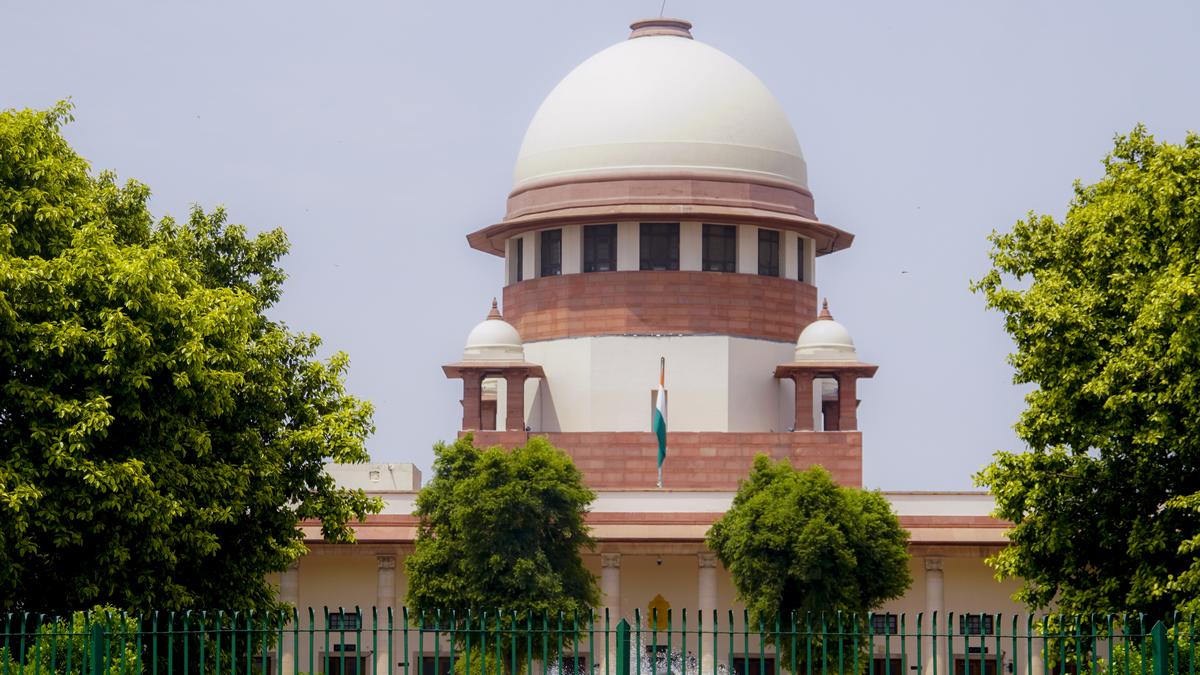Description
.jpg)
Disclaimer: Copyright infringement not intended.
Context
- Supreme Court reaffirmed the criteria for constituting an offence under Section 153A of the Indian Penal Code (IPC).
The criteria
Essential Ingredient:
- The crucial requirement to establish an offence under Section 153A IPC is the creation of enmity and disharmony among two or more groups or communities.
Legal Standard:
- Without fulfilling this requirement, no offence can be established under Section 153A IPC.
Implication:
- This interpretation emphasizes the necessity of demonstrating the promotion of enmity or disharmony among groups or communities for Section 153A IPC to apply.
Judicial Clarity:
- The Supreme Court's ruling provides clarity on the legal standards governing cases involving alleged incitement of communal tension or disharmony.
Section 153A of the IPC
- Section 153A IPC was added to the Code in the year 1898 by the Indian Penal Code (Amendment) Act, 1898, seeing the rise in the number of cases of violence arising out of breach of public tranquillity. Before this Section was enacted, promoting class hatred was part of the English law of sedition.
- Section 153A of the IPC aims to prevent and punish acts promoting enmity between different groups based on religion, caste, race, place of birth, residence, or language.
Key Provisions:
- The provision holds individuals accountable for various actions:
- Spreading enmity through spoken or written words, visual representations, or signs with the intent to cause disharmony, hatred, or disturbance among different groups.
- Disrupting public tranquility among people from diverse racial and religious backgrounds.
- Assisting in organizing movements or drills that incite participants to use criminal force or violence against individuals from other racial or religious groups.
- Covering offences involving moral turpitude.
In a nutshell,
Essential Conditions for Offence:
- The provision targets acts promoting enmity through speech, writing, or behavior that attack religion, ethnicity, nationality, race, color, descent, gender, etc.
- It penalizes actions that disrupt public tranquility or aid in organizing movements promoting violence among religious, racial, linguistic, or caste groups.
Sub-section 1 of Section 153A IPC:
- Clause (a): Covers acts promoting enmity between groups through spoken or written words, signs, or visible representations, focusing on specific grounds like religion, race, place of birth, residence, language, caste, or community.
- Clause (b): Addresses acts hindering harmony between different groups and disturbing public tranquility.
- Clause (c): Targets organizing activities promoting violence among religious, racial, linguistic, or caste groups.
Sub-section 2 of Section 153A IPC:
- Deals with offences committed in places of worship, enhancing punishment for aggravated forms of offences specified in subsection 1.
Punishment and Legal Nature:
- Offences under Section 153A are cognizable and can result in imprisonment for up to three years, a fine, or both.
- Notably, the offence is non-bailable, and the accused is tried by a magistrate of the first class.
- Enhanced punishment of up to five years and a fine is applicable for offences committed in places of worship.
Conclusion:
- Section 153A serves as a crucial legal instrument to maintain social harmony and prevent actions that could lead to communal tension or violence.
- By penalizing acts aimed at inciting hatred or disharmony among different groups, the provision reinforces the importance of respecting diversity and promoting mutual understanding in society.
Comparative study of Section 153A IPC with other provisions
|
Basis
|
Section 153A
|
Section 295
|
Section 295A
|
|
Purpose
|
Deals with offences promoting enmity between different groups on grounds of religion, race, caste, etc.
|
Deals with offences intended to destroy, damage, or defilement a place of worship or an object held sacred, with intent to insult the religion of a class of persons.
|
Deals with offences related to deliberate and malicious acts intended to outrage religious feelings.
|
|
Punishment.
|
Imprisonment may extend up to 3 years or fine or both and if at the place of worship is enhanced up to 5 years and fine.
|
Imprisonment that may extend up to 2 years or fine or both.
|
Imprisonment that may extend up to 3 years or fine or both.
|
|
Nature of offence.
|
The offence is cognizable in nature.
|
The offence is cognizable in nature.
|
The offence is cognizable in nature.
|
|
Bailable or non-bailable offence.
|
The offence is non-bailable.
|
The offence is non-bailable.
|
The offence is non-bailable.
|
|
Compoundable or non-compoundable offence.
|
The offence is non-compoundable, i.e., the out-of-court settlement cannot be done.
|
The offence is non-compoundable
|
The offence is non-compoundable
|
|
PRACTICE QUESTION
Q. Which of the following statements regarding Section 153A of the Indian Penal Code (IPC) is correct?
A) Section 153A deals with offences promoting enmity solely on the basis of religion.
B) The punishment under Section 153A IPC includes imprisonment for up to 5 years, with the possibility of a fine, for offences committed at places of worship.
C) Offences under Section 153A IPC are considered non-bailable.
D) Section 153A IPC allows for the possibility of out-of-court settlements, making it a compoundable offence.
Choose the correct option:
1.A and B only
2.B and C only
3.A and D only
4.B only
Answer. 2
|




.jpg)
.jpg)



